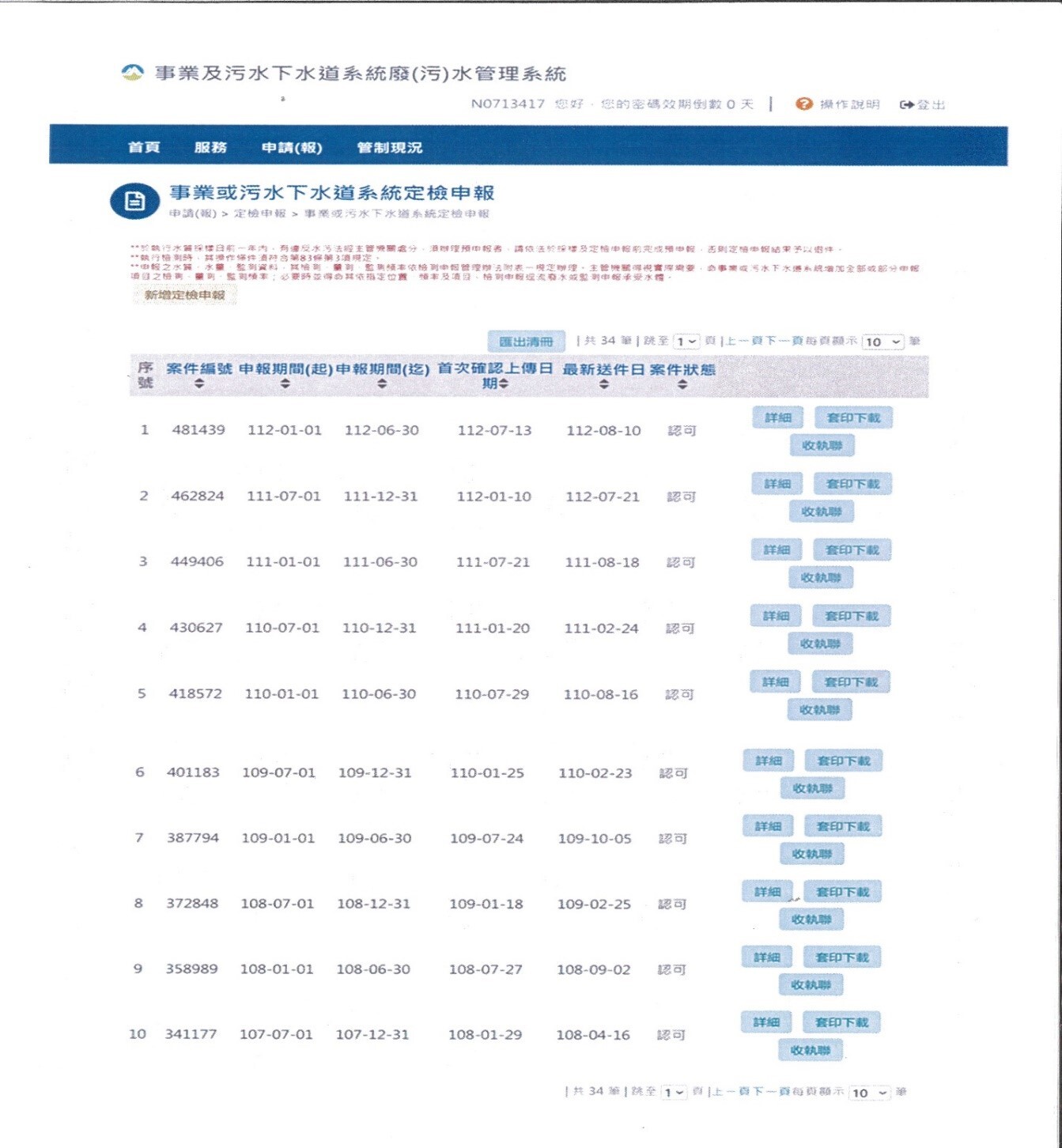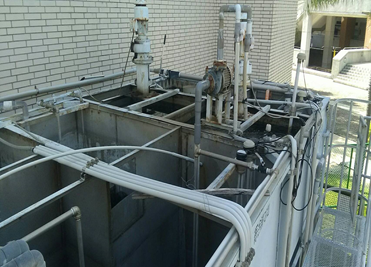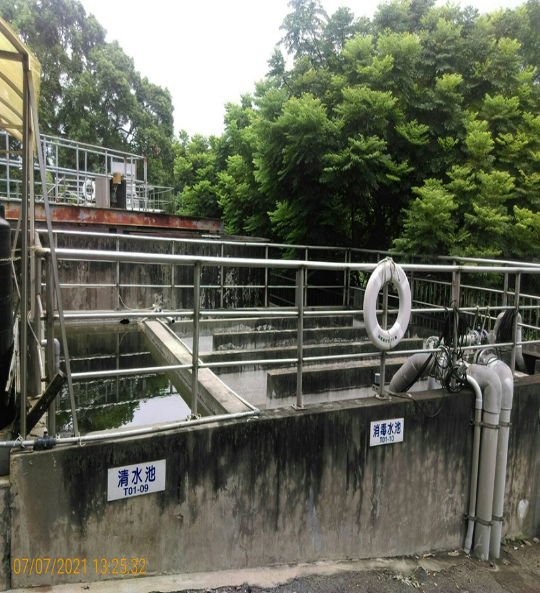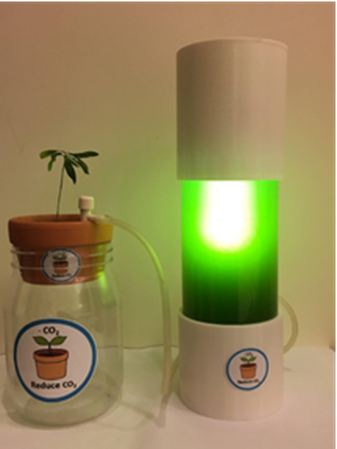SDG 14.5.1 Minimizing alteration of aquatic ecosystems (plan)
In accordance with the regulations of the Waste Disposal Act, the laboratory waste liquid in NCUE is entrusted to be cleaned and treated as industrial waste, and the original sewage treatment facilities are still in normal operation. In addition, the Department of Biology’s Project of the Division of Science and Technology/“Carbon Fixing Algae Tree”: Teaching Experimental Module of National High School Energy Saving and Carbon Reduction Module, and activities such as “Observing the Pink Storm - Discussing the Conservation of Coral Reef Ecosystems and the Background of Public Referendum Events” and “The Little-Known Underwater Architects: Diversity, Ecology, and Evolution of Shell Coral Algae” at the Center for General Education aim to minimize the physical, chemical, and biological changes in the relevant aquatic ecosystems.
1. Reduction of water quality changes in NCUE:
NCUE manages all generated effluent by routing it through a centralized wastewater treatment plant. The treated water is then discharged through outlets approved and regulated by the authorities. The university complies with the regulations outlined in the Water Pollution Control Act (Link: https://law.moj.gov.tw/LawClass/LawAll.aspx?media=print&pcode=O0040001) and Water Pollution Control Act Enforcement Rules (Link:
https://law.moj.gov.tw/LawClass/LawAll.aspx?media=print&pcode=O0040002) in handling and reporting the discharge of its wastewater. Every year in July, the University submits a report that includes the water quality testing results for both the raw wastewater and the discharged wastewater for the period from January to June of the current year. Additionally, in the following year, by January, the University submits a report that covers the water quality testing results for both the raw wastewater and the discharged wastewater for the period from July to December of the preceding year.
The following is a screenshot of NCUE’s reporting on the webpage of the “Waste/Polluted Water Management System for Businesses and Sewage Systems” (WPMIS) of the Environmental Protection Administration (EPA), as shown in Figure 1:
|
|
|
Figure 1. Screenshot of the webpage of NCUE on the EPA’s “Waste/Polluted Water Management System for Businesses and Sewage Systems” reporting page |
The maintenance photos of the wastewater treatment plant are shown in Figures 2-3.
|
|
|
|
Figure 2. Jinde Campus Sewage Treatment Plant |
Figure 3. Baoshan Campus Sewage Treatment Plan |
2. Ministry of Science and Technology Project/“Carbon Fixation Algae Tree”: Junior and Senior High School Energy Conservation and Carbon Reduction Model Teaching Experiment Module.
This project is named “Carbon Fixation Algae Tree”: Junior and Senior High School Energy Conservation and Carbon Reduction Model Teaching Experiment Module. Under the multiple impacts of the 21st century’s depletion of the Earth’s natural resources and the deterioration of the human living environment, environmental protection and the importance of the Earth’s ecosphere have become a common global concern. It is an important program to teach children the correct knowledge, attitude, environmental protection awareness, and evaluation of energy. In order to effectively utilizeand conserve energy, mitigate global warming, conserve energy and reduce carbon emission are not just slogans, but practical approaches. These initiatives should become important educational goals, related photos as shown in Figure 4.
|
|
|
Figure 4. Carbon fixation algae tree and microbial composting system |
3. The Center for General Education accepts the information of general education seminars held by related units of NCUE as shown in Table 1:
Table 1.Information on general education seminars
|
Organizer (Unit) / Topic |
Date held |
Number of participants |
|
[Extracurricular Activities Section, Office of Student Affairs] Observing the Pink Storm - Discussing the Conservation of Coral Reef Ecosystems and the Background of Public Referendum Events |
2021/4/8 |
50 |
|
[Department of Biology] The Little-Known Underwater Architects: Diversity, Ecology, and Evolution of Shell Coral Algae |
2021/4/26 |
200 |




